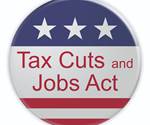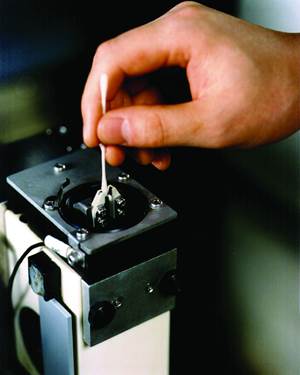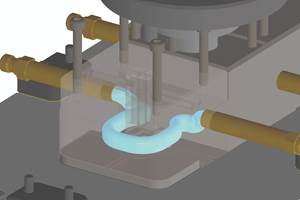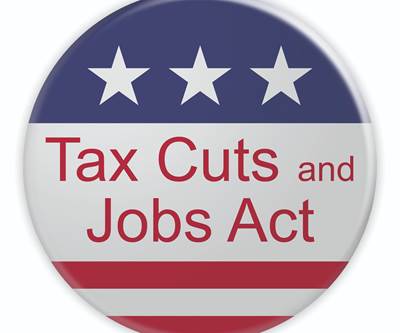How to Reduce a Mold Shop’s Top Effective Tax Rate
U.S. Treasury and the IRS proposed rules on new flow-through deductions.
The U.S. Treasury and the IRS proposed new rules this past summer under §199A (also known as the deduction for qualified business income), which the Tax Cuts and Jobs Act (the Act) introduced. These rules provide a deduction equal to 20 percent of qualifying business income for the owner of a flow-through entity (which includes S corporations, partnerships and sole proprietorships) with the potential to reduce a mold shop’s top effective tax rate to 29.6 percent.
This new provision applies to tax years beginning after December 31, 2017 and before January 1, 2026. Generally, most non-corporate U.S. mold shops will qualify for the new flow-through deduction. Mold shops should review the new rules to ensure that they do not limit their potential §199A deduction.
In the case of an S corporation or a partnership, the deduction is determined at the individual or trust level, and the deduction cannot exceed 20 percent of the shop’s taxable income. Losses for qualifying businesses are carried forward to offset future qualifying business income. Each shareholder or partner must consider his or her allocable share of qualified items of income, gain, deduction and loss to determine his or her qualified business income.
The deduction is “below the line.” That is, the §199A deduction is not a part of computing the adjusted gross income (AGI). Instead, it is a deduction in the calculation of federal, taxable income. As noted, the §199A deduction can have the effect of lowering the tax rate to 29.6 percent for taxable income related to a qualified business like a U.S. mold shop.
Wage and Property Limitation
For mold shop owners with higher income, §199A imposes a wage and property limitation. The §199A deduction is equal to the lesser of either 20 percent of the qualified business income or the wage and property limitation. The wage and property limitation is equal to the greater of 50 percent of the shop’s W-2 wages and the sum of 25 percent of the shop’s W-2 wages plus 2.5 percent of the unadjusted basis immediately after acquiring (UBIA) qualified property.
As with items of income, gain, deduction and loss, shareholders of S corporations and partners of partnerships must consider their allocable share of the W-2 wages and UBIA of qualified property to determine their wage and property limitation.
The wage and property limitation does not apply to shops with taxable income below a threshold amount (which is $315,000 if filing a joint return). The wage and property limitation is phased in for a joint return with the full wage and property limitation applicable once taxable income reaches $415,000.
The §199A deduction can give the effect of lowering the tax rate to 29.6 percent for taxable income related to a qualified business, such as a U.S. mold shop.
Specified Service Trades or Businesses
For high-income taxpayers, §199A provides that no deduction is allowed for Specified Service Trades or Businesses (SSTB). These include a litany of different service businesses, such as law, accounting, health, consulting businesses, and those for which the principal asset is the reputation or skill of one or more of its employees or owners. The exclusion for SSTBs does not apply to shops with taxable income less than the threshold amount ($315,000 if filing a joint return) and is phased in over a range (between $315,000 and $415,000 for a joint return).
The new rules provide guidance in two important areas for tool shops. First, the proposed regulations narrowly define “reputation or skill of one or more employee” as income that is earned from endorsements, licensing of an individual’s image, likeness, name, signature, voice, trademark or other symbol that is associated with an individual’s identity or receiving appearance fees. Before the proposed regulations, some commentators would construe this provision in an overly broad way to include common activities for mold shops. However, this favorable definition is welcome news for mold shops.
Second, a de minimis rule (or a rule for something that is too small or insignificant to be considered) has been proposed for mold shops that have both qualifying business income and SSTB income. For mold shops with annual gross receipts of $25 million or less in a taxable year, the shop will not be an SSTB as long as less than 10 percent of its gross receipts are attributable to the performance of services in an SSTB.
For mold shops with annual gross receipt greater than $25 million, the shop will not be an SSTB as long as less than 5 percent of its gross receipts are attributable to the performance of services in an SSTB. That is, mold shops are unlikely to be penalized when providing de minimis consulting services.
Multiple Businesses
For shop owners who own multiple trades or businesses, each trade or business will compute its qualified business income along with its wage and property limitation. While shops are permitted to aggregate these amounts, they are not required to do so. In the event of a shop wanting to aggregate its trades or businesses, special rules and limitations apply. However, qualifying businesses may not aggregate with SSTBs.
Also, shop owners who own their facilities in a separate entity and then rent the plant to the operating business will be happy to learn that the rental income will qualify for the deduction, as long as the rent is coming from a trade or business that meets the requirements for qualifying business income, and there is common ownership. However, not all rental income may qualify. Eligibility is determined based on the facts and circumstances.
Before the proposed regulations, some commentators would construe this provision in an overly broad way to include common activities for mold shops. However, this favorable definition is welcome news for mold shops.
Non-Calendar Year-End S Corporations and Partnerships
The proposed rules clarify that individuals or trusts receiving a K-1 from a non-calendar year-end S corporation or partnership for a tax-year straddling December 31, 2017 can claim the full §199A for the tax year, assuming that they meet all the other requirements. While §199A is effective for tax years beginning after December 31, 2017, the tax year is determined at the individual or trust level.
For example, if an individual owns 100 percent of an S corporation with a fiscal year beginning on August 1, 2017 and ending on July 31, 2018, he or she will be able to claim a §199A deduction for the 12 months of qualifying business income on his or her 2018 federal income tax return.
The §199A flow-through deduction greatly benefits U.S. mold shops, making it important for them to understand the new rules, the limitations and exclusions so that mold shops do not diminish the benefits.
About the Contributor
Michael J. Devereux II, CPA, CMP is a partner and director of manufacturing, distribution and plastics industry services at Mueller Prost.
Related Content
Maintaining a Wire EDM Machine
To achieve the ultimate capability and level of productivity from your wire EDM on a consistent, repeatable and reliable basis, regular maintenance is a required task.
Read MoreTooling 4.0: Connecting Industry 4.0 Technology to Your Molds and Molding Process
A packaging supplier applies Industry 4.0 technology to its injection molds so that components talk to each another to understand the dynamics of what is happening inside the mold.
Read MoreHow to Supply Cooling to Additive Tooling
Additive tooling provides limitless options for cooling a mold’s difficult-to-cool areas.
Read MoreHow to Analyze and Optimize Cutting Conditions to Reduce Cycle Time
Plastic injection mold design and manufacturing company puts NC program optimization software module to the test. The results were surprising.
Read MoreRead Next
How Tax Reform Impacts the Accounting Methods of Mold Shops
The Tax Cuts and Jobs Act of 2017 code may broaden the accounting methods available to mold builders with average annual gross receipts of less than $25 million for the prior three tax years.
Read MoreHow to Use Continuing Education to Remain Competitive in Moldmaking
Continued training helps moldmakers make tooling decisions and properly use the latest cutting tool to efficiently machine high-quality molds.
Read MoreOvercoming Pain Points in Moldmaking with AI
Shops that embrace AI as a tool, not a threat, can enhance efficiency, preserve expertise, and attract tech-savvy talent.
Read More





















